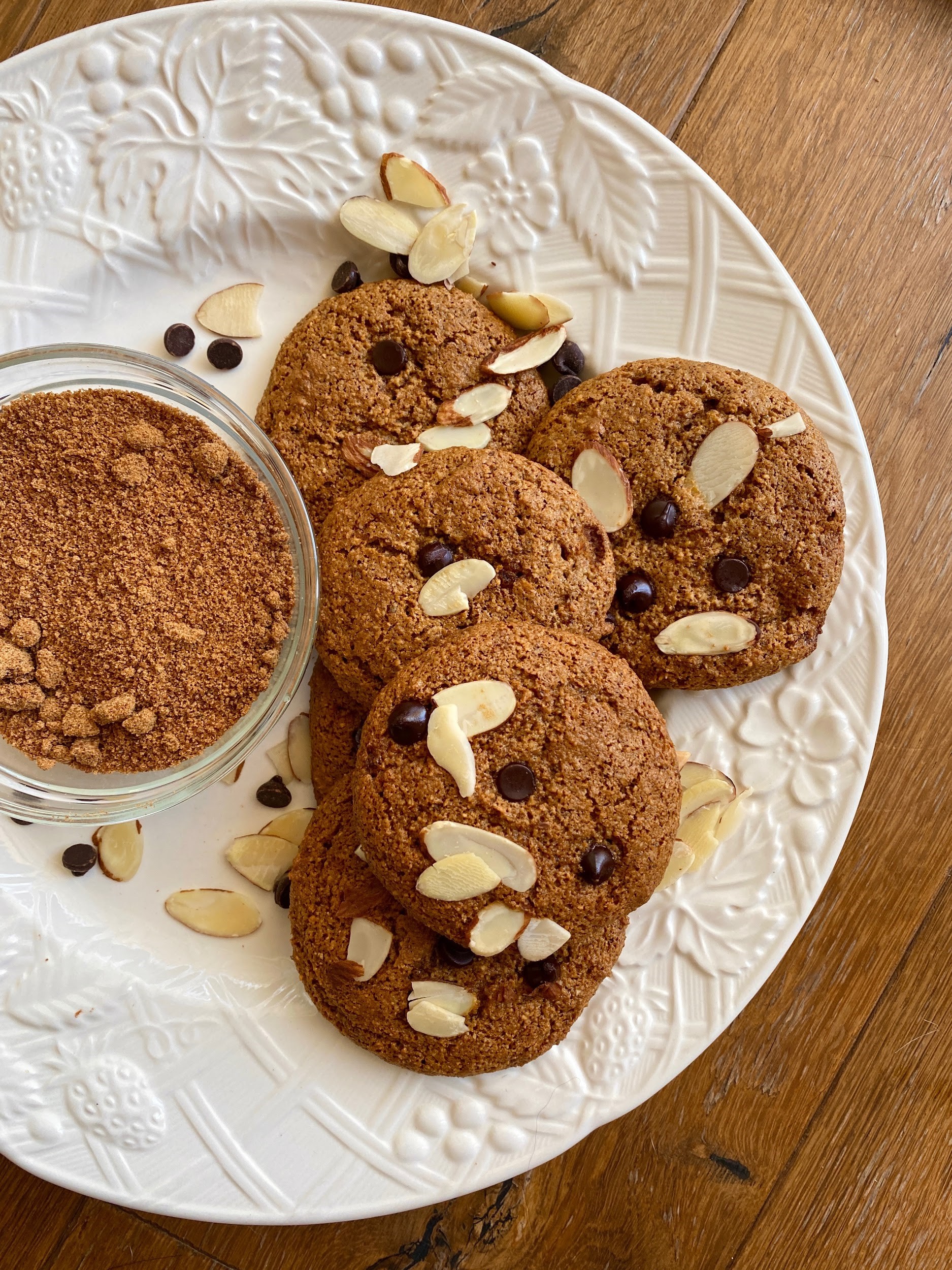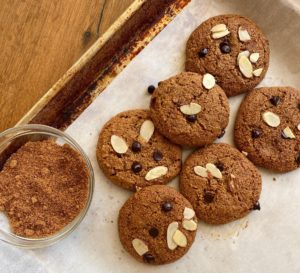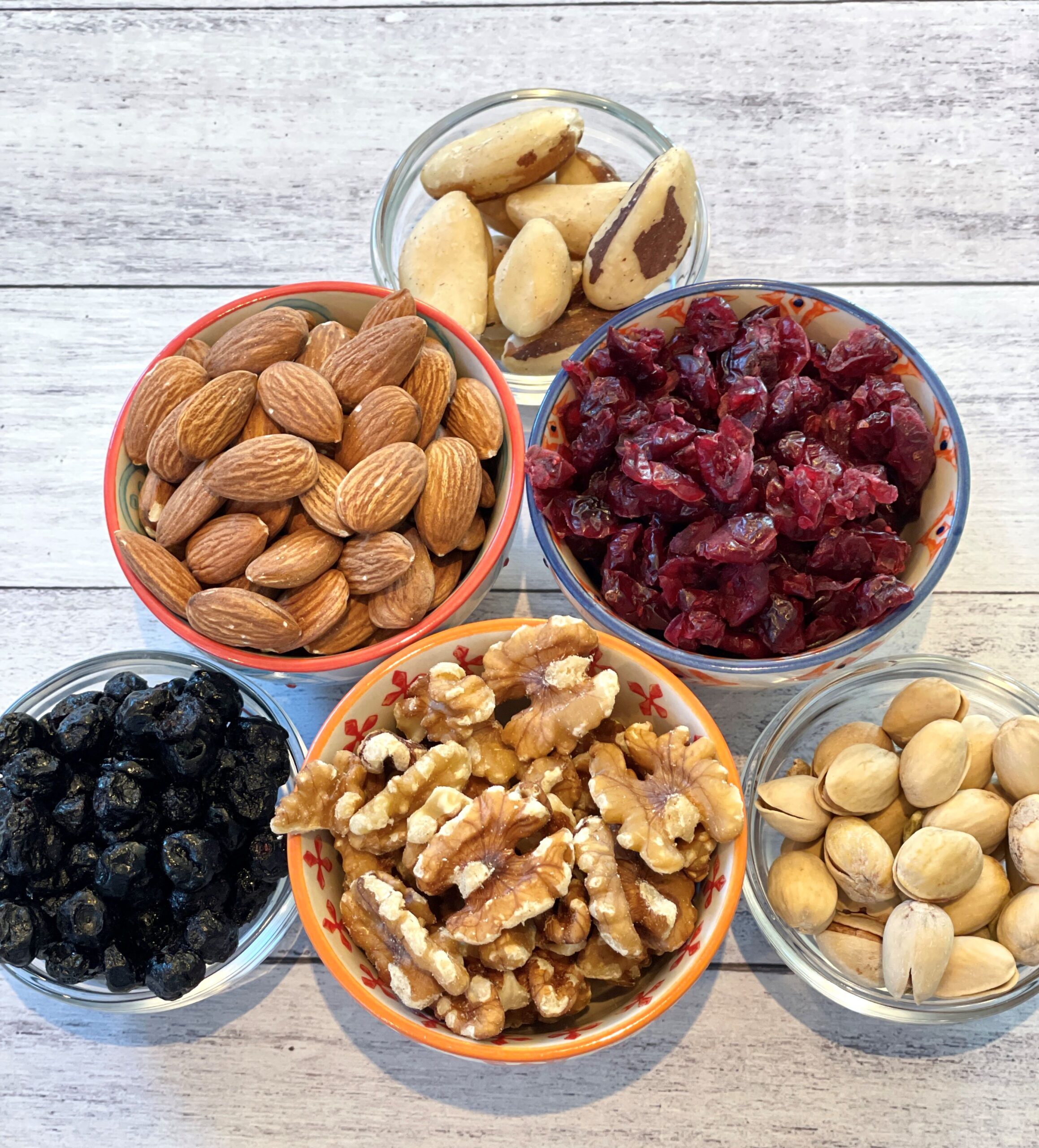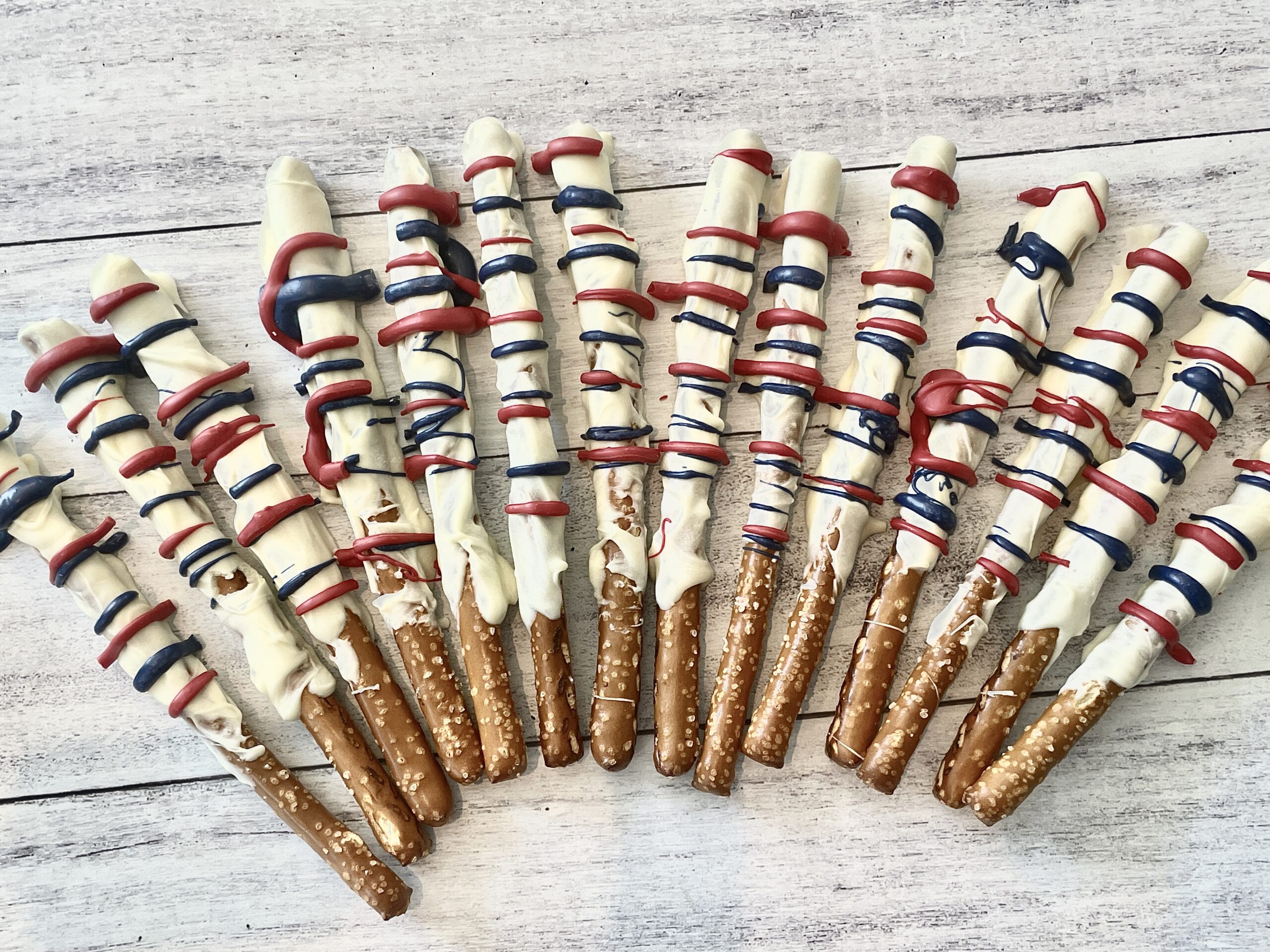Natural Unrefined Sugars Compared to Refined Cane Sugar

In the world of nutrition, the newest health craze is always swarming the internet. Recently I have noticed many people baking with natural sweeteners as a healthier alternative to cane sugar. Being someone with a sweet tooth, this intrigued me. So, are natural sweeteners, also known as unrefined sugars, like honey, maple syrup, and coconut sugar, better alternatives in baking than plain old refined cane sugar? Here is what I found about Natural Unrefined Sugars Compared to Refined Cane Sugar.
*The above photo features the Paleo Hazelnut Chocolate Chip Cookies featuring coconut sugar by Kale Junkie. Hailey took the photo.
Honey: One tablespoon of honey contains 64 calories, which is higher than that of sugar at 49 calories per tablespoon. However, honey’s nutritional profile is full of beneficial properties, unlike sugar. Honey has antioxidants, amino acids, enzymes, minerals, and vitamins. Its chemical composition is 40% fructose and 30% glucose whereas white table sugar is 50% fructose and 50% glucose. Thus, honey does not spike glycemic levels as fast.
How to use
- Use 1/2 – 3/4 cup of honey for each one cup of sugar
- Reduce the liquid by 1/4 cup for each cup of sugar
- Reduce cooking temp by 25 degrees
Maple Syrup: Maple syrup is naturally concentrated directly from a maple tree. Giving rise to a delicious flavor profile and a nutritional one as well. It contains antioxidants that are anti-inflammatory, anti-cancer, and anti-bacterial. It also contains minerals: calcium, iron, magnesium, potassium, zinc, copper, and manganese. 1/4 cup of maple syrup contains over 100% of your recommended daily value of manganese. Maple syrup has prebiotics called oligosaccharides, which help feed healthy probiotics. All of the properties uniquely found in maple syrup make it a fantastically healthy alternative to cane sugar. Cane sugars chemical composition is 50% fructose and 50% glucose, whereas maple syrups’ is about 50-75% sucrose, less than 10% glucose and, less than 4% fructose, which is lower on the glycemic index. Just like honey, maple syrup causes less of a spike than cane sugar.
How to use
- Use 2/3 cup of maple syrup for every cup of cane sugar
- You’ll also need to decrease all other liquid in your recipe by about 1/4 cup
Coconut Sugar: Coconut sugar is most similar to cane sugar compared to the other unrefined sugars like honey or maple syrup. More than three-fourths of the sugar content of coconut sugar is the same as regular table sugar. However, coconut sugar does contain trace amounts of minerals, like iron, zinc, calcium, and potassium, and some short-chain fatty acids, polyphenols, and antioxidants. Because of the chemical composition of coconut sugar being similar to table sugar, they have similar glycemic index levels.
How to use
- 1:1 basis to regular cane sugar and brown sugar
Overall, sugar is still digested in our bodies as sugar no matter where it comes from. Some of the sugars do offer extra nutritional benefits. But you’re still consuming a sugar. If you are looking for an unrefined source of sugar, then honey, maple syrup, and coconut sugar make great nutritious substitutes. They bring versatility to baking with an extra nutrient boost and delicious flavor!
Try some recipes for yourself and notice that cane sugar won’t be missed:
Honey and maple syrup are one of my favorite forms of liquid sugar, especially in no bake desserts. Enjoy this 4-ingredient, no bake dessert recipe that uses Maple Syrup: Homemade Peanut Butter Cups
For a baking recipe that uses Maple Syrup, check out: Zucchini Carrot Muffins

Here are my favorite cookies that use coconut sugar:
Paleo Hazelnut Chocolate Chip Cookies by Kale Junkie
For more posts related to Natural Unrefined Sugars Compared to Refined Cane Sugar, check out:
3 Effective Tips to Get Rid of Sugar Cravings
5 Healthy Baking Swaps
By Hailey Brandel, dietetic intern, IG: @enlightenedbyfood
Recent Posts
Get 10 Must-Have Protein-Rich Powerhouse Snacks
These will fuel and satiate you.
You’ll also get access to my newsletter for the latest recipes, health tips, and exclusive offerings.


